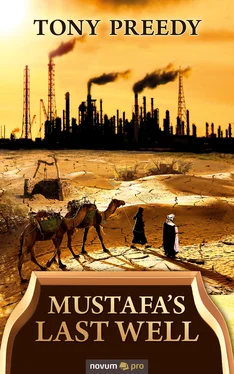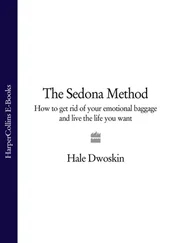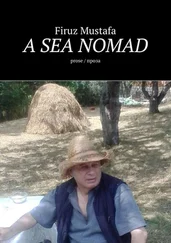The Naamlahns started in pursuit, but their leader shouted above the wind to his nephew and the traders: “Leave the intruders, for they only search for their animals.”
“But uncle, they were approaching our new well,” replied young Juma, in a futile attempt to justify what he had done.
***
The young man, now owner of the missing sheep and from then the instant ruler of his Bedouin tribe, who for generations had roamed the land of Haqum east of the wadi, washed the body and prayed as he buried the Sheikh, his respected father, on that festive night. The new leader was oblivious to the wealth concealed within their land which might, but for a twist of fate, have liberated his people from poverty. In his anguish, he called on his sons as yet unborn, and their sons after them, to avenge the unprovoked murder of his father by the al-Wyly.
Before sunrise next morning, after the storm was spent, the Naamlahn leader had the sheep returned unseen to where they would be found, near the camp of their neighbours. Later that morning, as the sun was rising, he lay prostrate on his prayer mat desperately beseeching Allah to accept his generous act and thus prevent the inevitable retribution demanded for the death, even of a simple shepherd, by the hand of his nephew, as expected within their culture. Otherwise, it was written that a feud would exist for each of the four generations represented by the fingers on a hand, until only the thumb remained, and the metaphoric hand could no longer hold a dagger.
***
Later that day the Imam held a special ceremony to bless the new well, and the traders gave thanks to Allah in their prayers, whilst on the other side of the wadi the new leader gathered the men of his tribe to plan retribution for his father’s murder. All who loved and respected their old leader were incensed and called for the blood of their new enemy to be spilled.
That night, whilst the traders slept, a party of Bedouin approached from across the wadi. They first encountered the three sleeping slaves, who they woke and threatened with death if they made a sound, saying they had no argument with them. Next, they set fire to the tent. The remnants of the wind soon fanned the flames such that many inside were suffocated by smoke before they were awake. Those that did wake found their enemies waiting at the only exit with their curved khanjar, daggers, drawn. As they staggered out, gasping for air, the Bedouin grabbed them and cut their throats in the halal manner, in which they were accustomed to killing sheep. Juma was the last out, having suffered from burning clothes which he had discarded, leaving him bare to the waist in only his scorched izaar. As he took in the carnage outside, he was about to protest and proclaim who he was when two Bedu took hold of his arms and a third brought his knife to Juma’s throat.
Joseph, who had witnessed the slaughter, shouted at the top of his voice to the Bedu, “Stop, he is one of us!” The one with the knife looked as though he doubted this, but Joseph continued, “He is the plaything of his master and sleeps beside him.” The Bedu gave Juma a look of disgust, turned him towards Joseph and gave Juma a kick that sent him spread-eagled at Joseph’s feet. As Joseph lifted him by the shoulders, he whispered, “Stay quiet, young master, if you want to see your father again.”
Juma was incapable of making a reply; he was in such a state of shock from seeing the carnage that he could not even think properly. The young leader of the Bedu then told his men to leave the slaves and let them tell their Emir of this day. He led his band back to their camp, leaving the slaves with six scorched corpses and six who had died slowly from loss of blood.
Realizing Juma’s condition, Joseph assumed authority and instructed the other two slaves to start digging graves, after choosing a site on the Naamlahn side of the wadi. They found the tools that Mustafa’s slaves had abandoned and set to work as daylight broke. Joseph meanwhile stripped the bodies and washed them with well water. Next, he cut shrouds from the remnants of the tent and bound the bodies. Juma watched as if in a trance, unable to grasp what had occurred. A few words of prayer were mumbled by one of the young slaves as each corpse was placed in its grave, with eyes towards Mecca and khanjar at its side. By the time each grave was filled the sun was high and the men were feeling hungry, but all of their food had been consumed in the fire. Joseph told them to kill and butcher one of the camels, of which they had fourteen, and gathered the remnants of ropes and tent poles for a fire. Throughout these activities, Juma remained in shock, watching in awe at Joseph’s industry. As the steaks cooked, Joseph used the last of the tent to make a cloak and took a headdress from one of the dead for Juma, for his protection from the sun. Of the steaks, some were for immediate consumption and others stowed on the camels to sustain them on their homeward journey.
They drew water for the camels to drink and filled skins for their own consumption, which they loaded onto the animals, together with the cooked meat. Joseph ordered the camels to be tied together in line and put a man on each of the front four. Juma had by now recovered and expressed gratitude to Joseph for saving him, but hoped that his reputation had not been ruined. The party prayed before setting off to the north with their shadows for guidance.
***
When they arrived back at the Emir’s fort, Joseph had returned to his subservient status, letting Juma lead the party to his father. He relayed the events to the Emir, but not how he had been the cause, and told of how he owed his life to Joseph and begged his father to reward the slaves by giving them freedom. The Emir’s thoughts were elsewhere. He told Juma that he was surprised that their neighbours had taken such offense when they discovered the new well in their territory and asked if there was some other cause for their violent acts. Juma denied knowing the real cause. The Emir decided that the well should not, in future, be used by his subjects. Juma again raised the subject of the slave’s freedom. His father considered this for several minutes, before replying:
“It will be impossible for them to support themselves.” He paused, clearly in thought. “There is a farm that was the property of my distant cousin, Mustafa the water finder. No near relative has been found who can claim it. They shall have it and make a living as date farmers.”
Juma reported this to Joseph, who broke into tears of gratitude, but Juma insisted it was he and the Emir who were in his debt. Juma never mentioned that he was responsible for the death of the other men, until on his deathbed, as Emir, he revealed the truth, for he feared that he would never experience the delights of heaven otherwise. Future descendent Emirs Sidiqu, Hammed and Salim would all suffer for Juma’s misdeed at the Well of Mustafa. After the skirmish, no trader dared to approach the well, for they feared attack by their Bedu neighbours. The well was abandoned and the potential wealth that lay nearby in the kabier wadi was not to be re-discovered until several generations had passed, during which the intensity of the feud subsided.
Chapter 4
Libya, year 1361 Hijri: AD 1943
The European war meant little to the inhabitants of Naamlah, but in North Africa it was impossible to escape from its impact as Britain fought against Germany and its Italian ally.
Since arriving in Libya, after the sea journey from Italy to the little port of Surt, Bernhardt’s panzer squadron of Rommel’s Africa Corps had made rapid progress in their small part of the conquest of North Africa. Their panzer convoy of Tiger 3 tanks, headed by a type 233, eight-wheeled armoured reconnaissance vehicle, was proceeding towards their destination, the British Egyptian military base in Alexandria. Earlier, the convoy had included half-track trucks carrying fuel, as the panzer tanks needed a gallon for every mile, but this supply had been exhausted, and they now relied on the widely separated fuel dumps of their Italian allies.
Читать дальше












